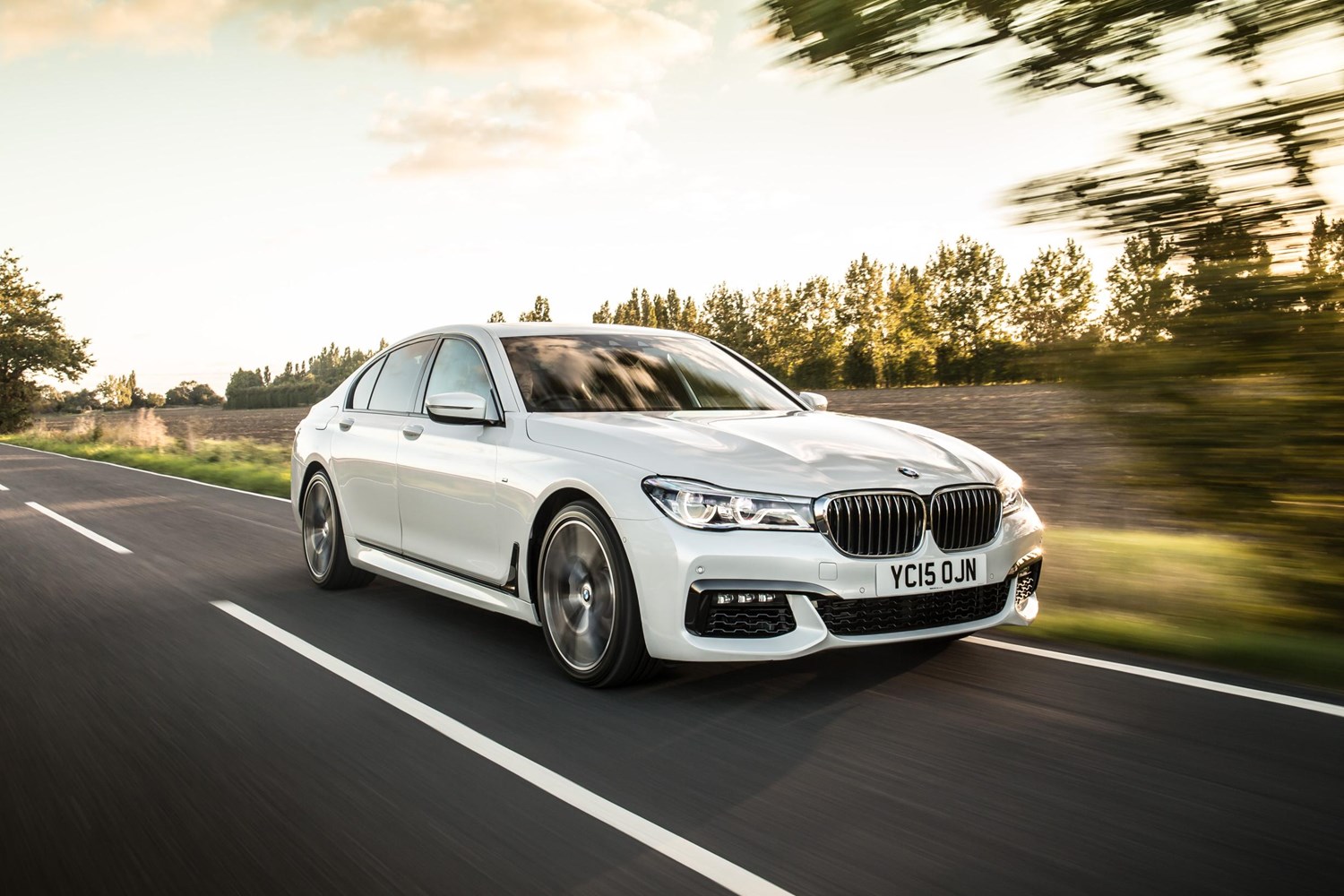Space and practicality
While the 7 Series is not exactly aimed at families, there is nothing to say you couldn’t use it as a family car.
The rear space is, unsurprisingly, where it is most impressive. If you want even more rear space you can choose the long-wheelbase car which is 14cm longer than the standard car, offering ridiculous amounts of rear legroom. You can choose whether you want a two- or three-seat layout in the rear, too, depending on what the 7 Series is going to be used for. As for boot space, it offers 515 litres of space, which should be easily enough for carrying your golf clubs.
EuroNCAP never tested the 7 Series, but it would undoubtedly fair well. It features some of the latest safety technology, such as all-round airbags, stability control and braking assistance. Optional packages can also drive the car completely in stop-start traffic as well as on motorways, with collision assist featuring as well. One of its cleverest packs, though, is one that comes as standard – the Dynamic Safety pack. This can close the windows and move the seats to an upright position to protect the passengers, if it senses an imminent impact.
Engines
BMW has certainly been generous with its engine line-up in the 7 Series.
On the petrol front, there is the 740i, 750i and M760Li. The 740i has a 3.0-litre engine that produces 322bhp, the 750i comes with a 444bhp 4.4-litre V8, while the top-of-the-range M760Li is fitted with a monstrous 6.6-litre V2 that produces a supercar-rivalling 602bhp.
As for diesels, there is again three options – the 725d, 730d and 740d. The 725d is fitted with a measly 2.0-litre, 228bhp, the 730d comes with a 261bhp 3.0-litre and the 740d also comes with a 3.0-litre engine, but instead produces 316bhp.
There is the option of a plug-in hybrid, too – the 740e. Its 2.0-litre petrol engine combined with an electric motor to produce 254bhp.
Running costs
One of the most impressive things about the 7 Series is just how cheap it is to run, particularly the diesel engines and the 740e plug-in hybrid.
The petrol engines are best avoided unless you cover small miles or do a lot of driving in urban environments. The 740e returns an impressive, claimed, 113-134.5mpg depending on the wheelbase and wheel size. The short wheelbase version of the 740e also has emissions under 50g/km, meaning it qualifies for the £2,500 plug-in car grant. The diesel engines are also extremely good on fuel, particularly for a car of this size. The entry-level 725d manages 61.4mpg, while the more powerful (and better) 730d still has a fuel economy figure of 60.1mpg, for not a lot more money to begin with.
Road tax shouldn’t be too bad either on the plug-in hybrid or diesel engines, although expect to pay much more for the petrol engines - most notably the fuel-guzzling M760Li. As for insurance costs, unsurprisingly for a car of this size, its groupings are high, varying from 46 to 50 depending on the model selected.


